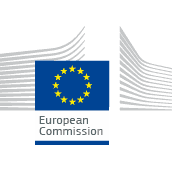
Pre-departure and post-arrival support for the integration of persons in need of international protection who are resettled from a third country including through volunteering activities Topic identifier: AMIF-2017-AG-INTE-03
Date de clôture : 1 mars 2018
APPEL À PROJET CLÔTURÉ
APPEL À PROJET CLÔTURÉ
Affaires sociales et inclusion
Personnes defavorisées
Relogement
Fonds Asile, Migration et Intégration (AMIF)
Aide aux réfugiés
Droit de l'immigration
Migrants et Réfugiés
Scope:
Resettlement of third-country nationals or stateless persons is one of the avenues that can be offered to displaced persons in need of international protection to enable them to arrive to the EU legally and safely and receive protection. Success or failure of resettlement largely depends on durable integration of resettled persons, many of whom have survived trauma or have one or more vulnerabilities as a result of their personal condition or displacement.
While several Member States have been engaged in resettlement for many years, common and coordinated EU efforts have also been developed in the past two years through the implementation of Council Conclusions of 20 July 2015 and the implementation of the EU-Turkey Statement of 18 March 2016. As part of the regular pledging which enables Member States to benefit from the EU funding support to their resettlement efforts, the Commission launched a new pledging exercise to support Member States' resettlement efforts also in 2018. In parallel, resettlement via private or community sponsorship schemes is increasingly being piloted in Member States.
To enable full, efficient and sustainable integration of resettled persons, integration measures in the pre- and post-arrival phases should be properly linked and co-ordinated, and different stakeholders should work together in order to address and meet the resettled people's needs as well as ensure the engagement of the host communities. Citizens in host communities can play an important role in welcoming and supporting refugees, also through volunteering activities, thus contributing to a faster and fuller integration process.
The objectives of this priority are to support:
– Pre-departure activities aimed at preparing resettled third country nationals for their life in the new country and managing their expectations; as a first step in the integration process, these should serve as a basis for subsequent post-arrival activities.
– Post-arrival activities, especially building on and deepening pre-departure activities, ensuring first reception, and enabling effective integration of resettled people; and
– Capacity-building in the receiving communities, including through the promotion of structured co-operation and partnership among national, regional and local actors, ranging from national administrations to NGOs, associations, refugee organisations, religious institutions, municipalities, volunteer networks, schools, universities, service-providers, potential employers and others.
Projects applications submitted under the present call for proposals under priority 3 can include the following activities (this list is non-exhaustive):
-
Pre-departure activities could include:
- identifying the specific needs of people to be resettled;
- providing general information on the receiving society, managing expectations and countering myths;
- language training;
- step-by-step guidance through the resettlement, reception and integration process;
- providing information on the receiving society’s legal framework, systems and social and cultural norms, rights and responsibilities;
- workshops on living in a multicultural and multi-religious environment;
- guidance on access to services, money management, etc.;
- first assessment and recognition of skills and qualifications – information on access to the labour market in the host country;
-
Post-arrival activities could include:
- language training;
- continuing the socio-cultural orientation provided in pre-departure activities;
- continuing the orientation on the receiving society's legal framework, rights, responsibilities and institutions;
- skills training;
- referral to appropriate services, including psychological counselling;
- concrete initiatives fostering the active participation of resettled persons in the receiving society;
- facilitating contacts and exchanges with the host community;
- facilitating contacts with diaspora and refugee organisations
- training officials, volunteers and service-providers on working with resettled people (e.g. sensitising them to vulnerability and experience of trauma);
-
Activities to prepare host communities for the arrival of resettled people could include:
- identifying the specific needs of resettled people upon arrival;
- preparing the relevant administrative bodies (schools, etc.);
- securing appropriate housing;
- socio-cultural orientation (e.g. information about countries of origin);
- countering myths;
- workshops on living in a multicultural and multi-religious environment;
- direct exchanges between the resettled people and host communities, e.g. through social-cultural activities, the arts, volunteering opportunities, etc;
- creating volunteering opportunities for resettled persons to help them enter in contact with the local community.
While all newcomers to a country face similar challenges, the experiences of resettled refugees are particular and are therefore specifically targeted through this priority. A special attention should be paid to the gender dimension, rights of the child, and vulnerabilities of resettled persons. Activities aimed at asylum seekers and refugees not arriving via resettlement, humanitarian admission, or private/community sponsorship schemes will not be considered for funding under priority 3 of this Call for Proposals.
Lien officiel : Disponible pour les utilisateurs enregistrés




S'il vous plaît Se connecter pour voir cette section